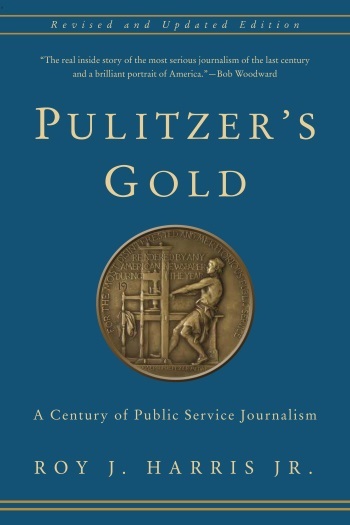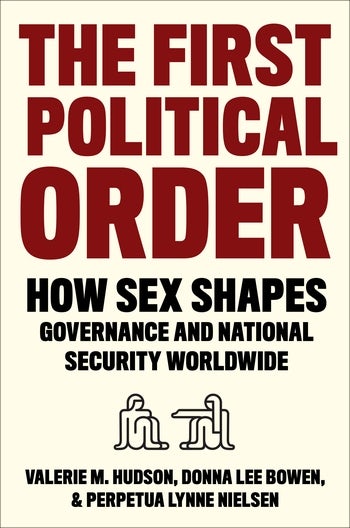All the Editor's Men — Pulitzer's Gold and Watergate
In the following excerpt from Pulitzer’s Gold: A Century of Public Service Journalism, Roy J. Harris looks back at the oft-told but frequently misunderstood history behind Woodward and Bernstein’s reporting of Watergate. In the passage, Woodward himself challenges the mythology that has grown around their coverage.
“People don’t win Pulitzer Prizes by being for; they usually win them by being against. “—President Richard M. Nixon, to the national association of broadcasters, march 19, 1974
Bob Woodward had not seen the movie All the President’s Men for twenty-five years. Then one day in mid-2005 he sat down with his eight-year old daughter Diana while she watched it for the first time. Noticing her squirming a bit, the Washington Post assistant managing editor asked what she was thinking. “The guy pretending to be you doesn’t look like you at all,” Diana told him. And what else? “Boring, boring, boring,” she said. “And she’s exactly right,” Woodward agrees, chuckling—not just about the movie, but about the nature of the Watergate investigation itself. “Because it’s about fitting little pieces together. You don’t know what you have when you publish a little piece, but you publish it anyway.” (See video below with Bob Woodward and Carl Bernstein discussing the story behind All the President’s Men)
Any squirming of his own on the topic of Watergate may have more to do with how often he has been asked over the years to rehash the role of “Woodstein”—as the Post editors nicknamed the duo of Woodward and Carl Bernstein during their investigation—in the events that led to President Richard Nixon’s August 1974 resignation. Just a few months before the father–daughter movie viewing, another flurry of national publicity erupted when Deep Throat chose to identify himself. Woodward’s celebrated secret source turned out to be W. Mark Felt, the number two man at the Federal Bureau of Investigation during the time of the Watergate probe. (A smoke-wreathed Hal Holbrook, stepping from behind pillars in an eerie, dark garage, played him in the 1976 film.)
Alan Pakula’s movie—with Robert Redford and Dustin Hoffman as Woodward and Bernstein and Jason Robards as the Post executive editor Ben Bradlee—actually holds up well today. For adults, at least, it now plays as a historical/political thriller. The mystery is not whether the president will fall but how two reporters and one cantankerous editor helped precipitate it, starting with the simple assignment to report on arrests after a break-in at the Watergate office building’s Democratic National Committee offices.
Missing from the film, of course, is a historical perspective tying the Nixon administration’s criminal activities to a greater political motive—something that four decades now permits. In recent years Woodward and Bernstein have offered an analysis positing the president’s “five wars of Watergate.” starting with attempts to stem the anti–Vietnam War movement, the White House strategy expanded to interfering with perceived enemies in the news media and in the Democratic party, to undermining the legal system by paying hush money to witnesses, and lying to investigators. The final “war” was against history, in the reporters’ view, and included the portrayal of spying, burglaries, and dirty tricks against administration targets as “capers” rather than episodes in a coordinated mission to subvert governmental processes.2
In one oft-quoted snippet from the White House tape recordings eventually released during the Watergate investigation, Nixon in July 1971—a year before the Watergate break-in—is heard telling chief of staff H. R. “Bob” Haldeman and secretary of state Henry Kissinger: “We’re up against an enemy, a conspiracy. They’re using any means. We are going to use any means. Is that clear?”
Years before Woodward joined the Post in 1971, the journalist believes, a skeptical spirit was growing in the media—a spirit that expanded during the Watergate scandal and to some extent continues today. It was “the back-to-back nature of Vietnam and Watergate” that gave it power. “If Watergate had been isolated, the impact wouldn’t have been the same,” he says.4 In southeast Asia, journalists had dealt with official deception on many levels. Seymour Hersh won the 1970 International Reporting Pulitzer for his work uncovering the massacre of civilians by American troops in the village of My lai. His stories had been carried by the small Washington-based Dispatch News service but had been published by newspapers around the country.
At home, war protests created divisions in the media just as those protests widened the schism between Americans. During that time—marked by the tumultuous 1968 Democratic National Convention and the shootings of Kent state University students by ohio National Guardsmen at a 1970 antiwar rally—many reporters developed a keen “question authority” mindset. And in Richard Nixon’s White House, war protests fed his paranoia about the president’s vulnerability, compounding his conviction that all opponents of his administration needed to be controlled.
The blue-bound Pulitzer Prize entry folders submitted by managing editor Howard simons in late January 1973—months before the Nixon administration’s role in the Watergate break-in was confirmed in any courtroom—offer one striking picture of the role of two young reporters and a courageous newspaper in exposing that insidious White House philosophy. Rather than any grand campaign, the folders present the matter-of-fact nature of the early Post coverage and how it built into a riveting drama mainly through accumulation. He filed two Pulitzer entries: one for public service for the paper and one for national reporting in the names of Woodward and Bernstein individually.
The step-by-step nature of the Post’s Watergate reporting is what Bob Woodward still feels is not well understood. During a dinner he had with Al Gore during President George W. Bush’s administration, for example, Woodward even challenged the former vice president’s view of what the Post had done in 1972. Gore—briefly a visiting journalism professor at Columbia University after leaving office and a reporter with Nashville’s Tennessean in the early 1970s—“talked about the purity of the Watergate stories.” He said, ‘Those were so wonderful, and now you write about Bush and you don’t nail him,’” according to Woodward, then the Post’s associate editor. “And I said to him, ‘You have consumed the Kool-Aid of the mythology of Watergate.’ Because those stories were incremental, they were not perfect. They contained some mistakes, they contained some under-reaching, some over-reaching. It’s what you would expect. It’s daily reporting. We didn’t say, ‘In an outrageous violation of all constitutional principles. . . . ’ We just said, ‘This happened.’ Very bland, bloodless, if you will. Not in the Pulitzer advocacy tradition.” And, he adds, perhaps thinking back to his recent movie-viewing experience, “there was no music in the background.”
Here is how Howard Simons summarized that “bland, bloodless” work in the nomination letter that the managing editor hoped would fit the Post entry into the Pulitzer public-service tradition:
It began as pure opera bouffe—four men, gloved and masked, breaking into Democratic National Committee headquarters in the dark of a summer night, armed with walkie-talkies and sophisticated electronic bugging devices. They even called it a caper.
But this was the Watergate Case, the biggest political scandal of the decade.
As this is written five men have pleaded guilty. two more are on trial. A high White House official has been eased out of his job. The treasurer of the Committee to Re-elect the President has resigned in protest. A senate investigation is underway. The Administration has been politically embarrassed.
The word “Watergate” has become a symbol for the deterioration of the American political ethic.
All of this has happened as the result of the journalistic efforts of The Washington Post, its reporters—Carl Bernstein and Robert Woodward—editors, editorial writers and its cartoonist.
It was a fine nomination letter, but the public service jurors were not persuaded. In March they made the Post only their third choice. It would take another month of confirming news to create media understanding of the Post’s real contributions. only then was the full Pulitzer board able to find it worthy of the gold medal.






1 Response